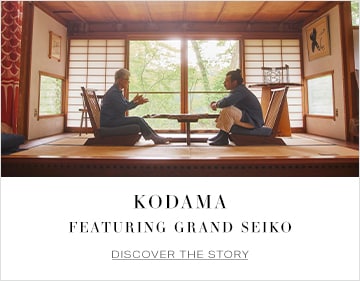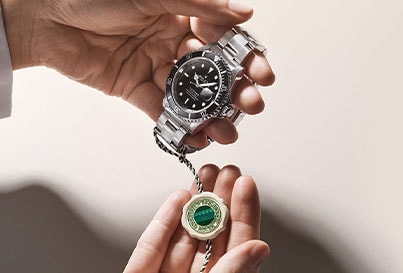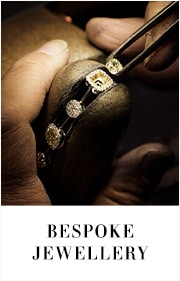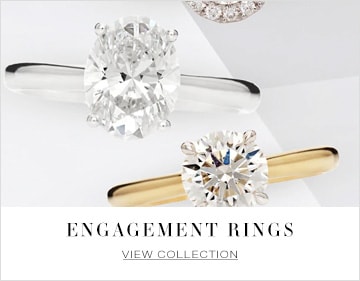Discussing IWC Schaffhausen with their Creative Director Christian Knoop
By Sarah Jayne Potter | 7 minute read
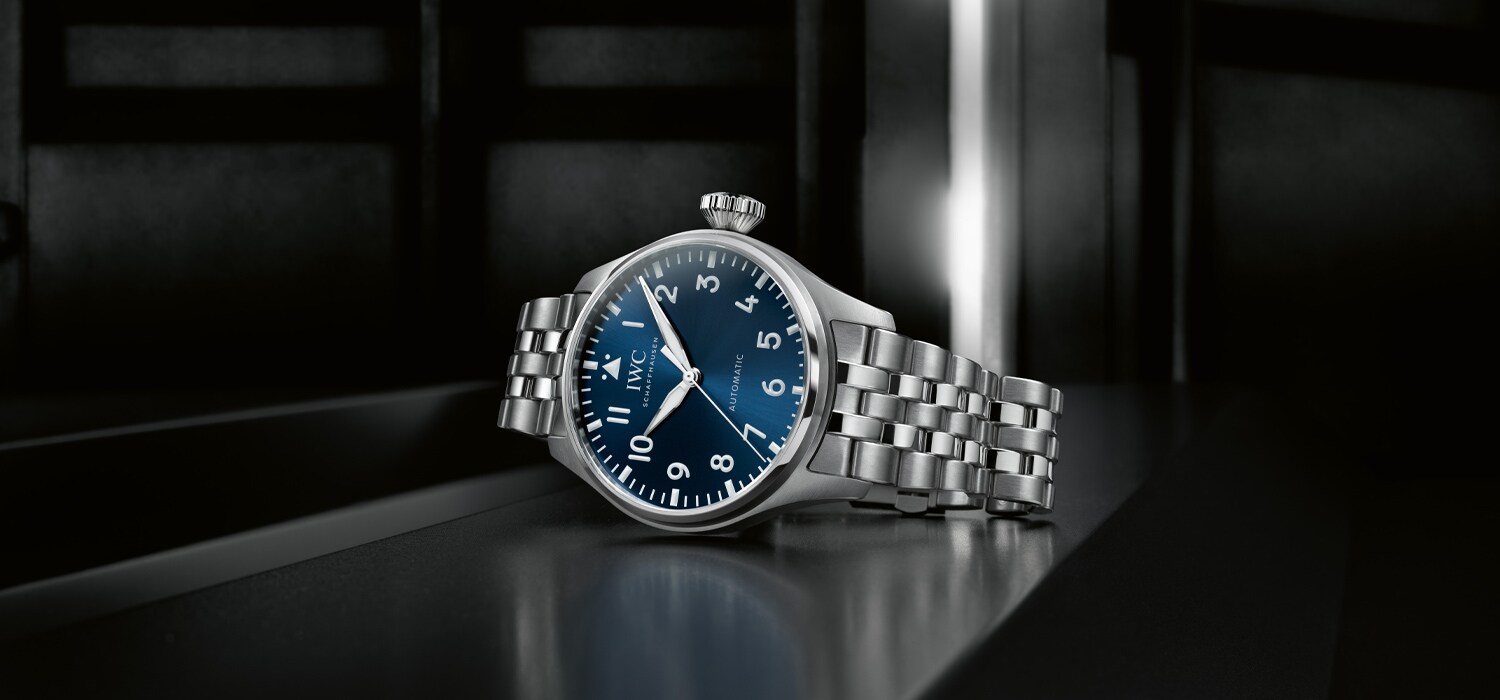
Over its 150 year history, IWC Schaffhausen has developed a reputation for creating functional complications, especially chronographs and calendars, which are ingenious, robust, and easy for customers to use. A pioneer in the use of titanium and ceramics, IWC today specialises in highly engineered technical watch cases manufactured from advanced materials, such as titanium-aluminide and Ceratanium®. Preferring the principle of “form follows function” over decoration, the Swiss watch manufacturer’s timeless creations embody their owners’ dreams and ambitions as they journey through life. We spoke to the brand’s Creative Director Christian Knoop about the brand, and their releases at watch fair Watches & Wonders.

How would you introduce IWC as a brand and describe the collections to a new watch collector?
IWC, the International Watch Company, was founded in 1868 by the American watchmaker and engineer Florentine Ariosto Jones. He travelled from Boston to Schaffhausen to combine skilled Swiss craftsmanship with the latest industrial technology from his homeland. By establishing the first centralised watch production in Switzerland, he achieved unprecedented levels of quality and precision. This reputation of robustness and accuracy made IWC a reference for professional applications and formed the foundations for collections that were designed for navigators, divers and aviators. Our essential collections are the Pilot’s Watches, the Portugieser and the Portofino. Our Pilot’s Watches were initially developed as robust and reliable instruments for the cockpit and are appreciated as versatile sports watches today. The Portugieser goes back to the iconic Reference 325 from the late 1930s and features an extraordinarily pure and crisp design. Our youngest collection is the Portofino. Launched during the 1980s, it combines the laid-back lifestyle of the Mediterranean with a touch of glamour and timeless elegance.
In your opinion, what sets IWC apart from other timepiece brands?
Based on our unique founding story, we have developed a different, rather engineering-driven approach to watchmaking. The first Pilot’s Watches and the Portugieser were functional instruments engineered to meet the specific requirements of aviation and navigation. While other brands are rooted in a more artisanal and decorative way of watchmaking, IWC creates functional complications, focusing on precision, robustness, legibility and user-friendliness. An example of this is our legendary perpetual calendar, whose displays can all be adjusted simply via the crown without additional pushers. The IWC-typical engineering approach has also produced iconic designs. The highly legible dial in the style of a cockpit instrument, the signature feature of our Pilot’s Watches, results from functional engineering to the requirements from civil and military aviation.
In your opinion, which is the most significant collection or piece from IWC and why?
It’s hard to pick out a single collection. If I had to, I would probably go for our Pilot’s Watches. They are great all-rounder sports watches in an iconic, aviation-inspired design and exemplify the unique power of imagination and emotion we project on mechanical watches. The timepiece you wear is not just an instrument to tell the time but also an object you connect many memories, stories, and dreams with. From the 1930s onwards, pilots used our watches for different technical and navigation-related tasks in the cockpit. When you wear a Pilot’s Watch today, maybe you are aware of its history and initial function, and you attach an emotional value to it. Many of us, including myself, had dreamt of becoming pilots when we were kids. The pilot’s watches we wear as adults have the unique ability to remind you of this childhood dream.
Which is your favourite ever piece from IWC, and why?
That would probably be the Big Pilot’s Watch. When the Grosse Fliegeruhr Ref. 5002 was released in 2002, it immediately caught my attention with its pure and crisp design. I was impressed by the uncompromising execution of the «form follows function» principle. The large case, the oversized conical crown, the easily legible dial; every detail is there for a reason. The Big Pilot’s Watch also illustrates IWC’s strategy to establish Pilot’s Watches in the context of luxury watches, setting in motion a trend that is now very common in the industry. No other Pilot’s Watch combines such a recognisable design DNA with so many different creative executions. It’s a «big» watch in every sense of the term.
Which piece or pieces would you recommend to our audience to start building their IWC collection?
To start an IWC collection, I would go for one of the following three:
Portugieser Chronograph
Iconic, crisp and pure Portugieser design with the characteristic minute scale, applied Arabic numerals and slender Feuille hands. Powered by our in-house calibre 69 column-wheel chronograph movement, which is visible through the sapphire glass back, this piece is available in a broad range of creative executions – in stainless steel or 18-carat 5N gold case with a silver-plated, black, slate-coloured, blue, burgundy or even green dial.
Portugieser Chronograph 41
The Pilot’s Watch Chronograph 41 from our 2021 novelties is a fantastic choice to enter the world of Pilot’s Watches. A highly wearable 41-millimetres case size and iconic design in the style of an easy-to-read cockpit instrument. This model, too, is powered by the in-house calibre 69 movement. The integrated EasX-CHANGE system allows you to change the strap or bracelet easily. Combines with the now 10 bars water-resistant case, this versatility turns the chronograph into the perfect companion for any adventure.
Portofino Hand-Wound Eight Days
The Portofino Hand-Wound Eight Days with the IWC-manufactured 59210 calibre movement is a fascinating piece to start your collection. Its large 45-millimetre case size and the in-house 59 caliber hand-wound movement exemplify the pocket watch heritage of IWC. The movement will run precisely and reliably for 192 hours, or eight days, before it automatically stops. The version with an 18-carat 5N gold case and a slate-coloured dial is particularly appealing.
As Watches & Wonders Geneva is upon us, can you tell us a little more about your new launches at the fair? Which piece is a personal favourite, and why?
In 2021, our focus is on the Big Pilot’s Watch. We are introducing this icon in 43 millimetres. For the Big Pilot’s Watch 43, we have distilled the pure essence of the iconic observation watch design with just a simple three-hand dial without any additional elements. Our idea was to create a complimentary piece to the already broad collection that would combine the typical instrument-style wrist presence with a new look and outstanding wearability.
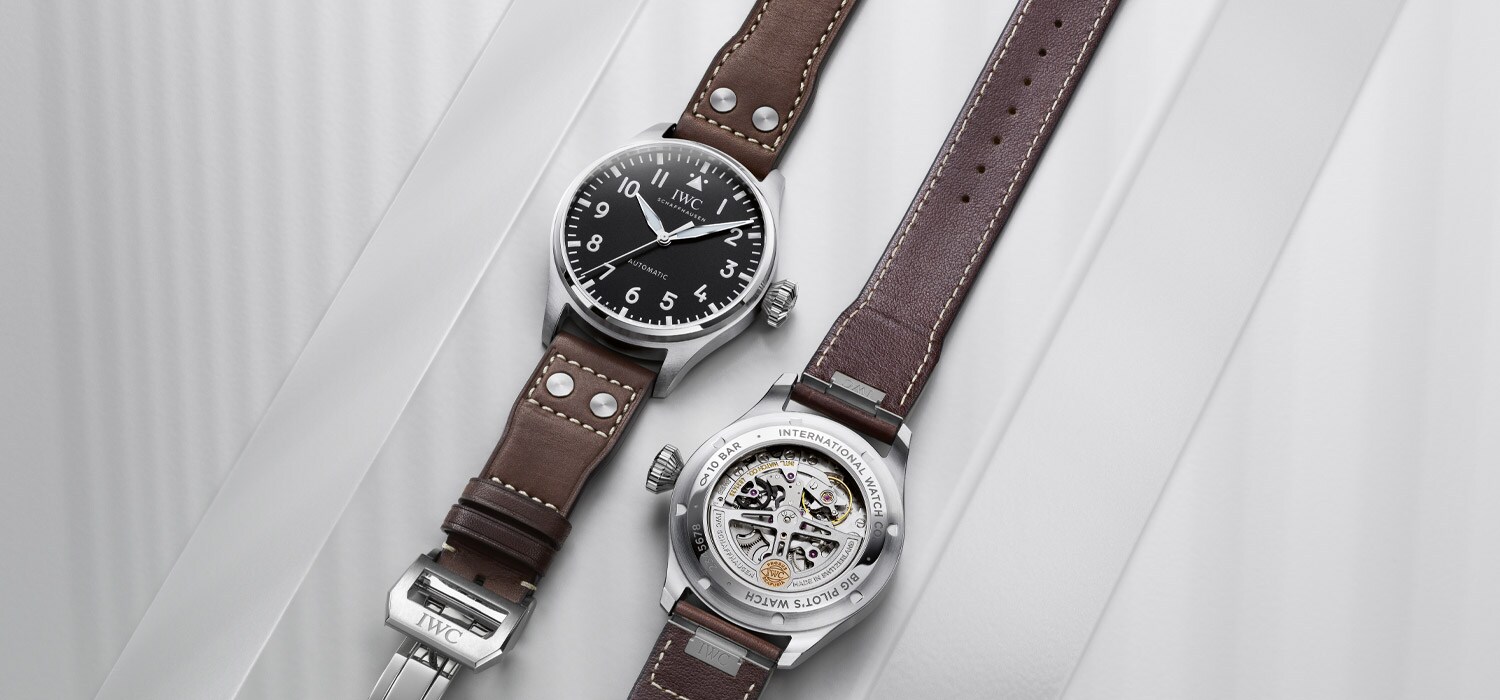
The integrated EasX-CHANGE system allows you to change the strap or bracelet at the touch of a button. For the first time, we offer the Big Pilot’s also on a metal bracelet. The new model is powered by the IWC-manufactured 82100 calibre, a high-end automatic movement with the unique IWC bi-directional Pellaton winding system that has been reinforced with ceramic components.
Why did you integrate a EasX-CHANGE system?
Over the years, we have seen that many people customise their Big Pilot’s Watches, mostly by using different straps. This underscored both the versatility of the design and also our customers’ desire to express their style and personality. What’s more, nowadays people are looking for a versatile timepiece that can be taken into the water or worn in a more rugged environment. For this reason, we created the Big Pilot’s Watch 43 with a practical and easy-to-use EasX-CHANGE system. In addition to calf leather straps with white stitching and four rivets, we also offer a choice of sporty and colourful rubber straps and a newly developed stainless steel bracelet.
What considerations went into developing the new metal bracelet?
As mentioned, we are presenting the Big Pilot’s Watch on a stainless steel bracelet. We put a lot of time and effort into developing a bracelet that not only matches the iconic design but also fits nicely into the overall Pilot’s Watches collection. The five-link execution adds to the design’s purity and gives the watch a crisp and contemporary look. Beautifully shaped links combining polished and satin-finished surfaces have a visible presence and nicely reflect the light. The fine adjustment system makes the bracelet easy to adjust and comfortable to wear. Combined with the now 10 bar water-resistant case, the bracelet offers a new sports functionality and provides a fresh and original look.
Why the open case back and not a soft iron inner cage?
Many of our Pilot’s Watches are historically associated with a soft-iron inner case that protects the movement against magnetic fields, a function that was originally developed for the Mark 11. This navigation watch was engineered to fit the stringent requirements of the British Royal Air Force back in 1948. While the 46-millimetre Big Pilot’s Watch has this feature, we decided to release the Big Pilot’s Watch 43 with a smaller case, a reduced case height and a sapphire glass back. Many of our customers appreciate the fact that they can observe the in-house movement at work.
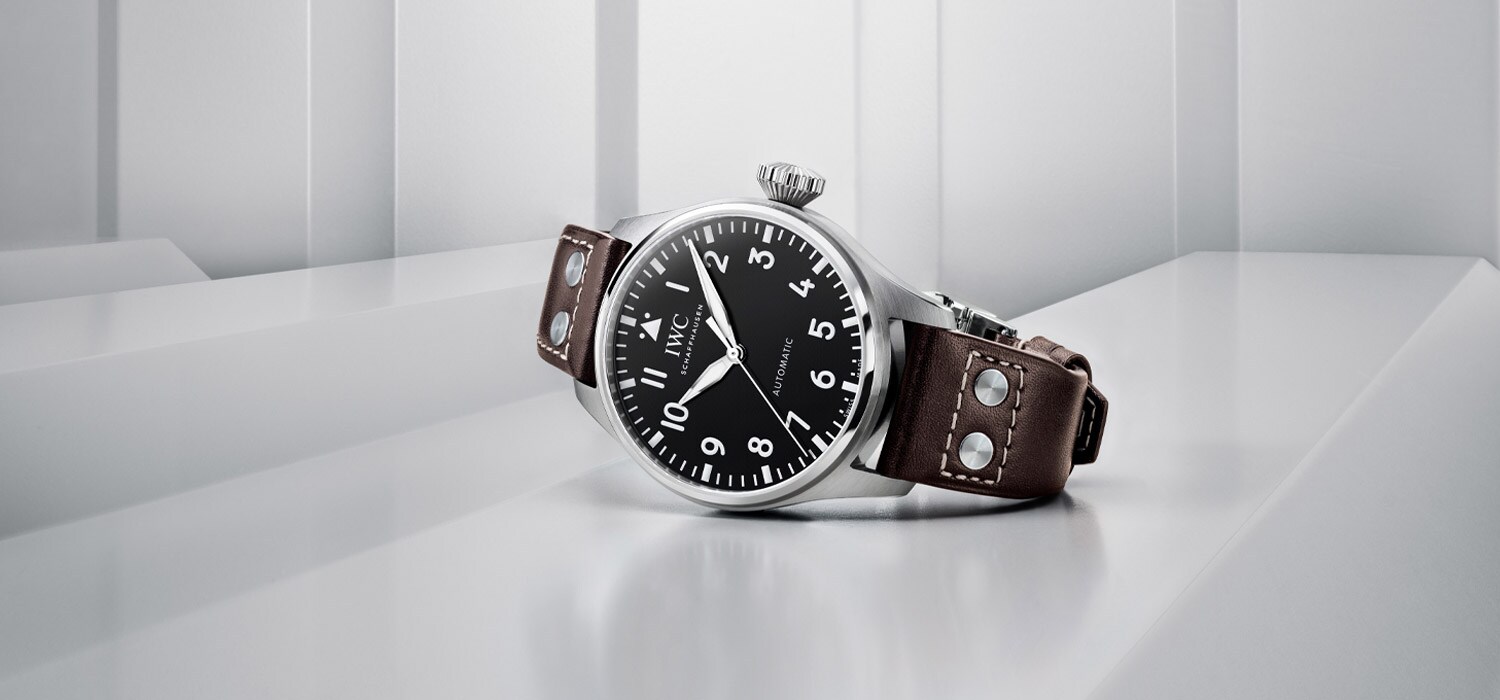
Finally, looking even more toward the future, what are you most excited about for IWC in 2021?
Our launches at Watches and Wonders Geneva only mark the first chapter. There will be more exciting releases later this year, so stay tuned for more from IWC to come your way.
